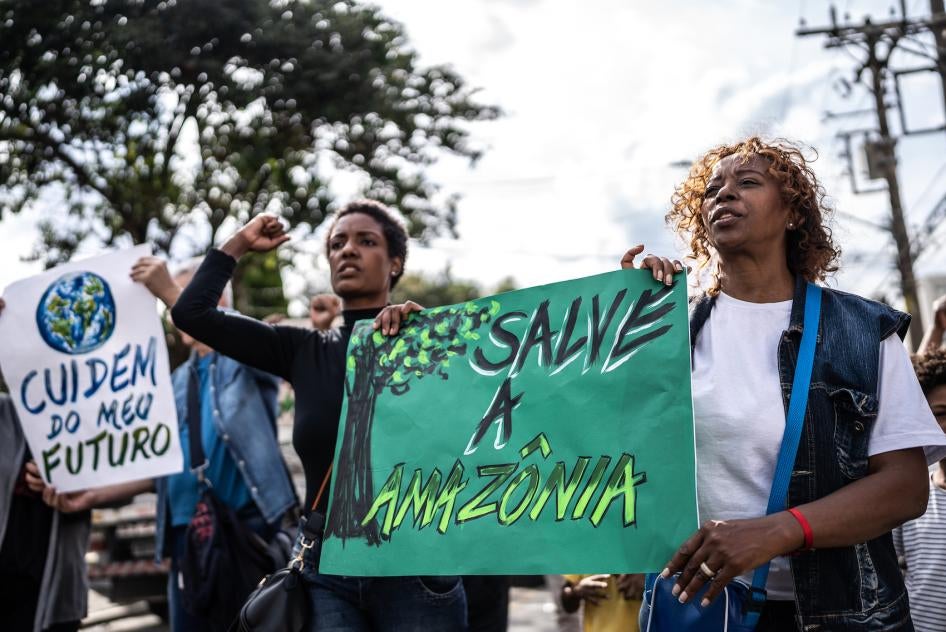The Brazilian government should submit the Escazu Agreement to the National Congress and rally legislators to approve it, more than 140 Brazilian and international organizations said today in an open letter to Foreign Minister Mauro Vieira. The regional agreement ensures public participation in environmental decision-making processes and is the first containing specific provisions on environmental human rights defenders.
In March 2018, 24 Latin American and Caribbean states adopted the Regional Agreement on Access to Information, Public Participation, and Access to Justice in Environmental Matters of Latin American and Caribbean Countries, also known as the Escazú Agreement. Brazil signed the treaty that year but has not sent it to Congress for approval and later ratification by the president, which is needed to make its provisions binding. The Lula administration should make that submission ahead of the second meeting of the Conference of the Parties to the Escazú Agreement (COP2), to be held on April 19-21, 2023, in Buenos Aires.
“The ratification of the Escazu Agreement would be a well-deserved recognition of the invaluable efforts of environmental defenders to protect our planet,” said Maria Laura Canineu, Brazil director at Human Rights Watch. “After years of a hostile stance toward the environment and their defenders in the country during the Bolsonaro administration, President Lula needs to show them – and the international community – that Brazil has their back.”
The signatories include organizations working with communities affected by environmental destruction and associated violence; on environment, Indigenous rights, transparency, access to information, public security, and human rights; as well as associations of public servants, including prosecutors working on the environment, and academic institutions.
The ratification and implementation of the treaty would strengthen environmental decision-making, booster transparency, and increase accountability with respect to the right to a healthy environment, Human Rights Watch said. The agreement guarantees everyone’s right to access environmental information, such as on environmental risks and environmental protection, as well as to meaningfully participate in decision-making processes that affect their lives and the environment. It also requires countries to ensure adequate access to justice when those rights are violated, and to establish systems to prevent environmental harm or provide redress when it occurs.
The agreement also provides standards for the protection of environmental human rights defenders. It requires participating governments to provide them with a safe and enabling environment, protect them, and hold accountable anyone who threatens or commits acts of violence and intimidation against. This is particularly relevant to countries like Brazil, where environmental defenders have faced the serious violence that goes hand in hand with environmental destruction.
In January, Human Rights Watch documented the plight of small farmers who have been risking their lives as they try to hold on to their land and protect the environment and their livelihoods in a land-reform settlement in the Amazon. They too, as with many Indigenous people and other environmental defenders, face threats and attacks for speaking up against criminal networks involved in illegal logging, mining, and land-grabs.
In the Brazilian Amazon alone, more than 300 people have died in conflicts over the use of land and resources in the last decade, according to the Pastoral Land Commission (Comissão Pastoral da Terra, CPT). Those responsible for the violence are rarely brought to justice.
“By requiring measures to prevent, investigate, and impose sanctions for attacks against environmental defenders, ratifying the Escazu Agreement would be a step forward for accountability,” Canineu said. “It would also foster Lula’s pledges to defend multilateralism by cooperating regionally to protect the environment and those who stand up to defend it”.








